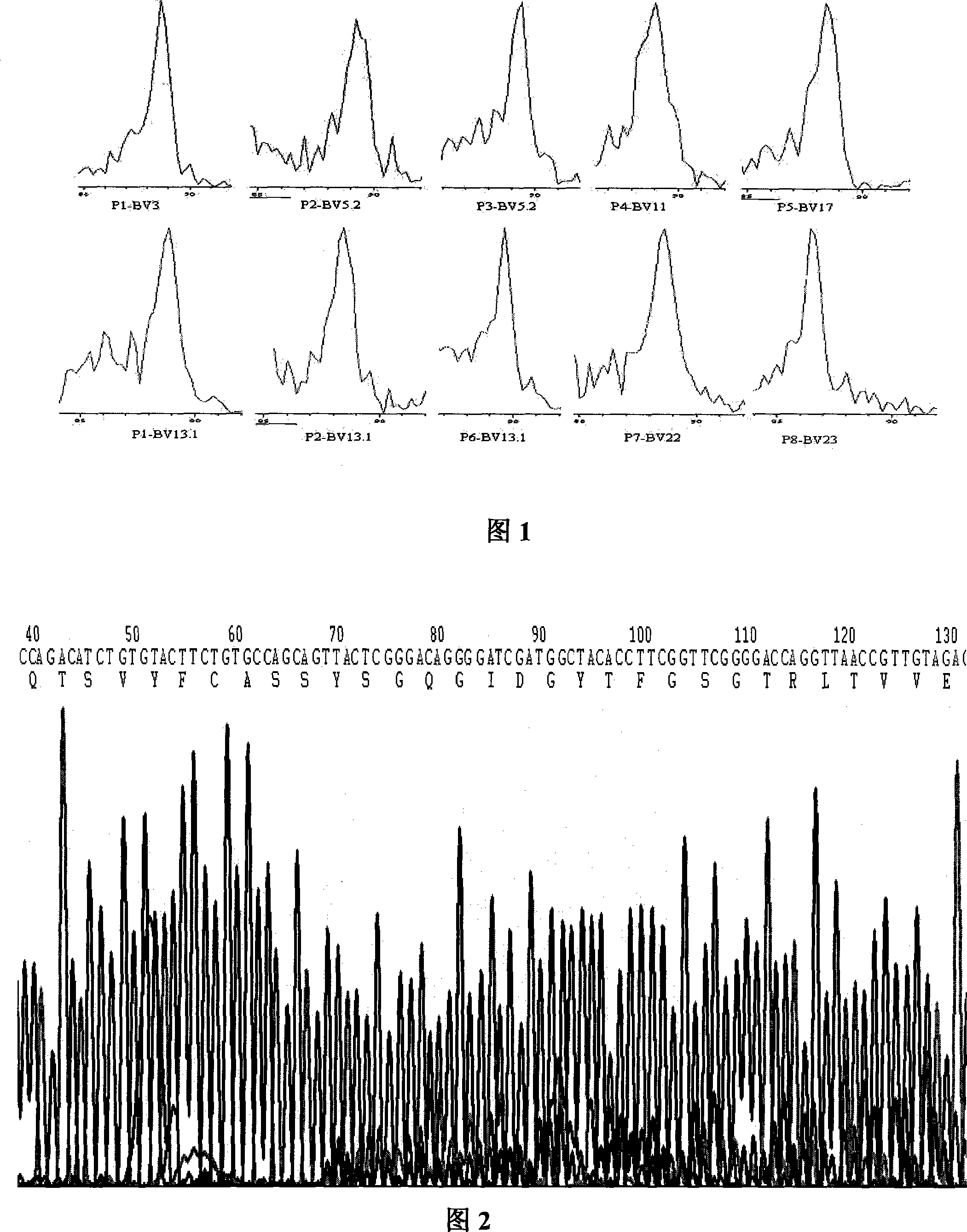Method for detecting genetic constitution of clone-specific T lymphocyte TCR BV CDR3
A lymphocyte, specific technology, applied in the field of biomedicine, can solve the problem of unable to provide TCR molecular characteristics T cell composition information and other problems
Inactive Publication Date: 2010-12-01
ZHEJIANG UNIV
View PDF0 Cites 0 Cited by
- Summary
- Abstract
- Description
- Claims
- Application Information
AI Technical Summary
Problems solved by technology
However, these methods cannot provide information on the TCR molecular signa
Method used
the structure of the environmentally friendly knitted fabric provided by the present invention; figure 2 Flow chart of the yarn wrapping machine for environmentally friendly knitted fabrics and storage devices; image 3 Is the parameter map of the yarn covering machine
View moreImage
Smart Image Click on the blue labels to locate them in the text.
Smart ImageViewing Examples
Examples
Experimental program
Comparison scheme
Effect test
 Login to View More
Login to View More PUM
 Login to View More
Login to View More Abstract
The invention relates to a genetic constitution detecting method for a cloned specific T lymphocyte TCR BV CDR3 gene, which comprises the following steps: a single nucleus cell of peripheral blood or a general RNA in tissue sample is extracted and reverse-transcribed to cDNA. The upper reach primer of the TCR BV twenty four families and a common lower reach primer BC are designed according to TCRBV gene; the cDNA is expanded using real-time fluorescent quantification PCR with dye method. The PCR product is analyzed with the melting curve; the negative primary derivative (-dF/dT) of fluorescence intensity change of the PCR product is graphed vs. the temperature (Tm); the peak graph of BV each family is obtained; the BV family PCR product showing single peak is purified and processed with serial analysis; the sequencing results are compared with the TCR Beta chain standard gene sequence. The distribution of the cloned specific T lymphocyte in tissue or peripheral blood is judged according to the appearing situation of single peak in BV each family peak graph; the genetic constitution of the cloned specific TCR BV CDR3 is determined combining the sequencing results. The genetic constitution detecting method for the cloned specific T lymphocyte TCR BV CDR3 gene has important significance in evaluating diseases related to specific cloned T cell.
Description
A method for detecting TCRBVCDR3 gene composition of clone-specific T lymphocytes technical field The invention belongs to the technical field of biomedicine, relates to molecular immunology and molecular biology, in particular to a detection method, in particular to a method for detection of peripheral blood clone-specific T lymphocytes. Background technique T cell receptor (TCR) is an important molecule on the surface of T lymphocytes to recognize and bind antigens and participate in specific cellular immunity. The TCR of 95% T lymphocytes in normal human peripheral blood is a heterodimer composed of two polypeptide chains α and β through disulfide bonds. The α chain is formed by the rearrangement of AV, AJ, and AC in the germline gene. The nucleotide sequence inserted at the end of AV, the front end of AJ and the middle constitutes the complementarity determining region 3 (CDR3) of the variable region of the TCR α chain. The β chain is formed by the germline gene. The ...
Claims
the structure of the environmentally friendly knitted fabric provided by the present invention; figure 2 Flow chart of the yarn wrapping machine for environmentally friendly knitted fabrics and storage devices; image 3 Is the parameter map of the yarn covering machine
Login to View More Application Information
Patent Timeline
 Login to View More
Login to View More IPC IPC(8): C12Q1/68C12N15/11
Inventor 杨介钻李兰娟何剑琴
Owner ZHEJIANG UNIV
Features
- R&D
- Intellectual Property
- Life Sciences
- Materials
- Tech Scout
Why Patsnap Eureka
- Unparalleled Data Quality
- Higher Quality Content
- 60% Fewer Hallucinations
Social media
Patsnap Eureka Blog
Learn More Browse by: Latest US Patents, China's latest patents, Technical Efficacy Thesaurus, Application Domain, Technology Topic, Popular Technical Reports.
© 2025 PatSnap. All rights reserved.Legal|Privacy policy|Modern Slavery Act Transparency Statement|Sitemap|About US| Contact US: help@patsnap.com

